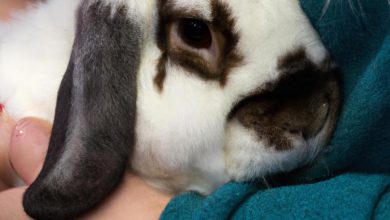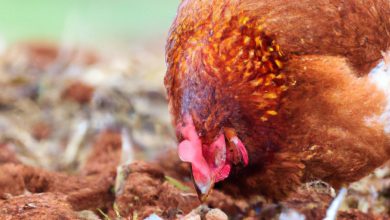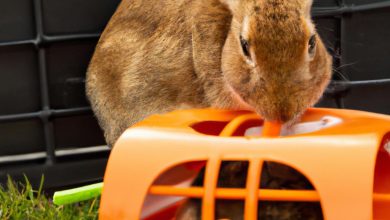Why Is My Rabbit Staying in One Place? Understanding the Reasons and Solutions
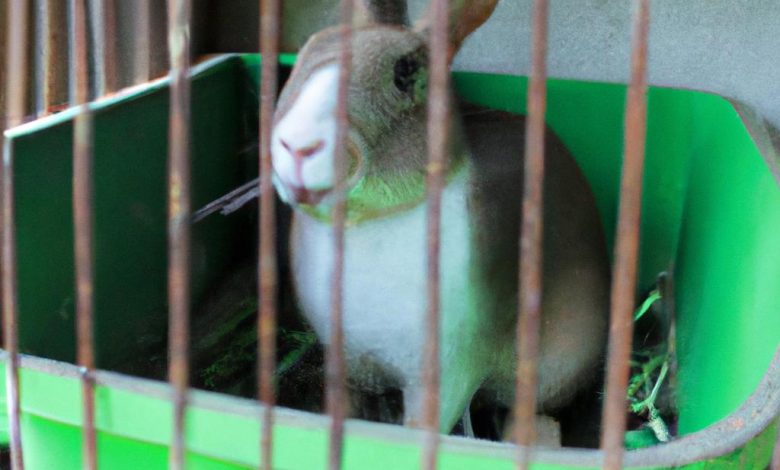
As a rabbit owner, it can be concerning when you notice your furry friend staying in one place for an extended period. While it is normal for rabbits to sleep or rest, prolonged inactivity can be a sign of an underlying problem. In this article, Rabbitfact will explore the possible reasons why your rabbit is staying in one place and what you can do to help.
Definition of the Problem
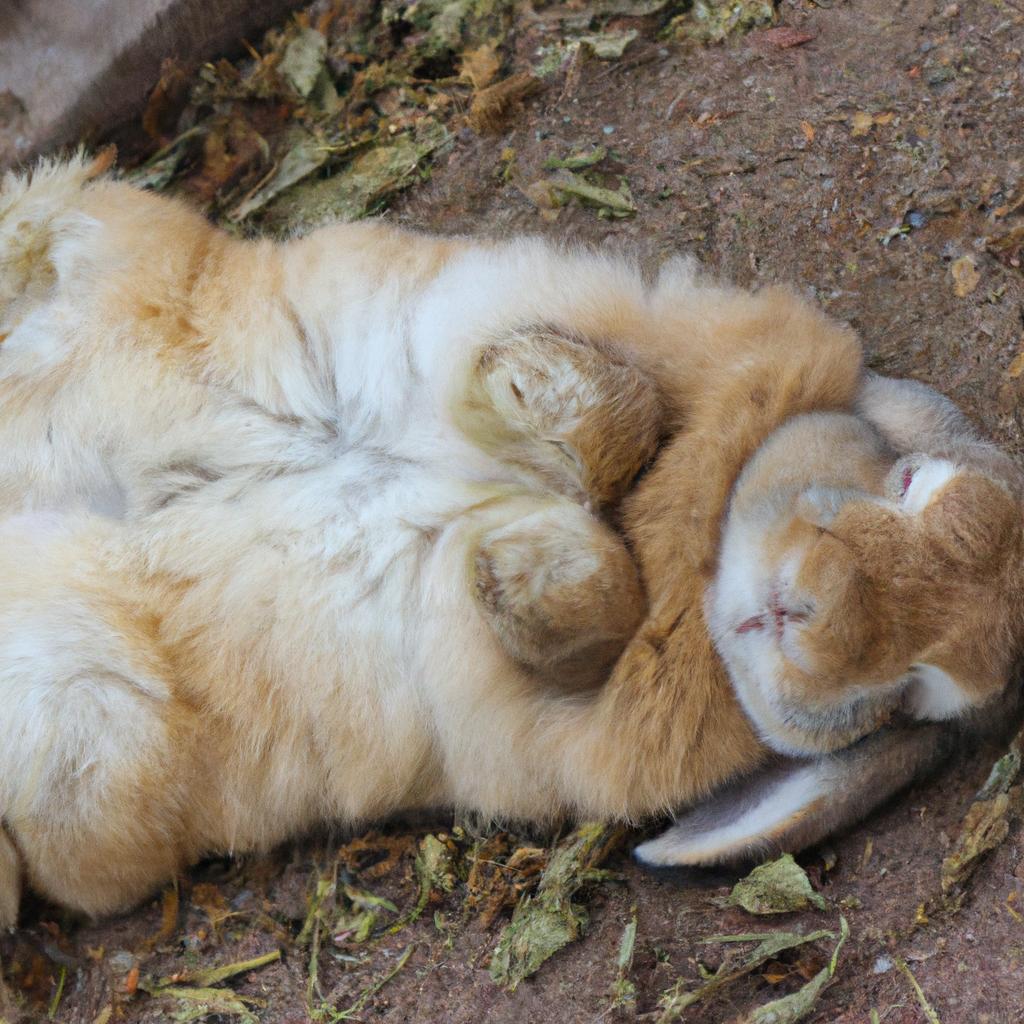
Rabbits are active animals that require sufficient space to run, jump, and play. When a rabbit stays in one place, it may indicate a health issue, environmental problem, behavioral issue, or a nutritional problem. Identifying the cause of your rabbit’s inactivity is crucial to provide appropriate care and prevent further complications.
Importance of the Issue
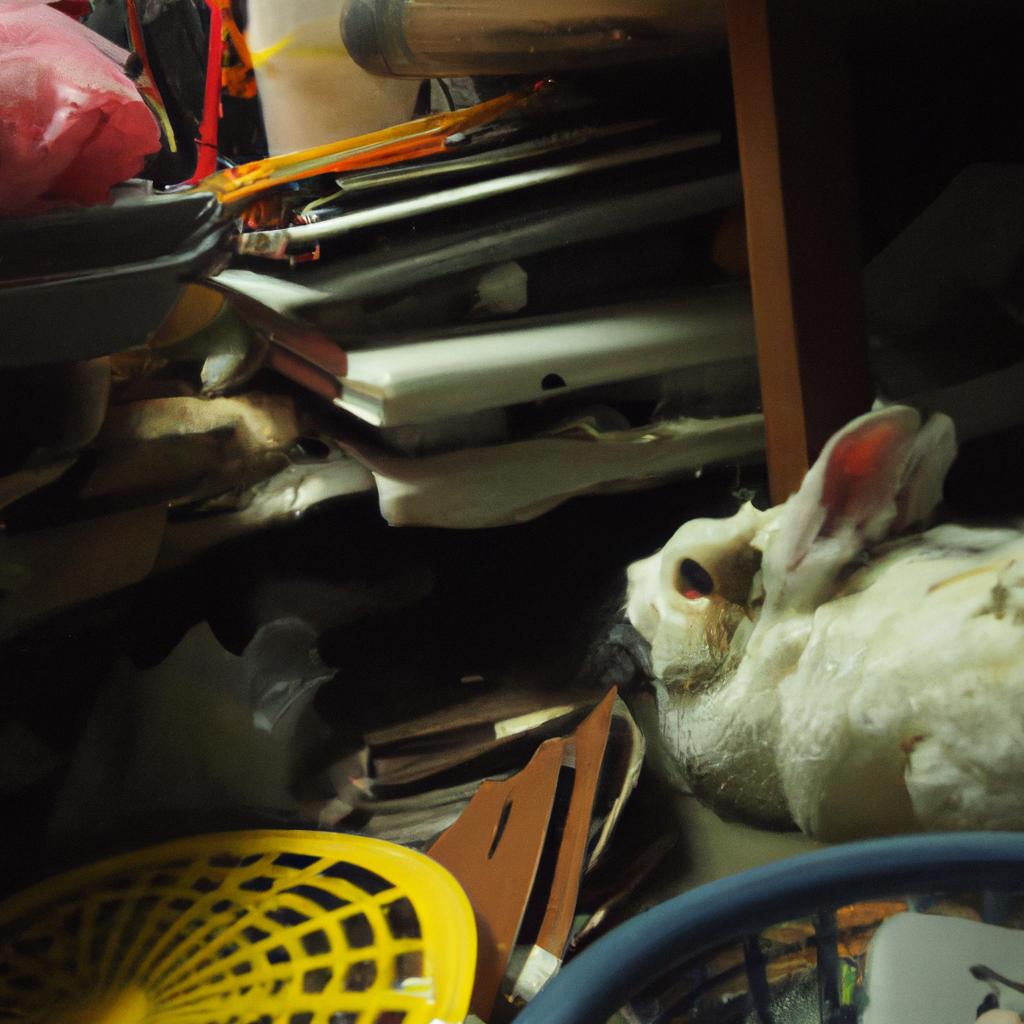
Rabbits are delicate animals that require a lot of care and attention to maintain their health and well-being. By understanding why your rabbit is staying in one place, you can address the issue promptly and prevent it from escalating into a severe health problem. Additionally, a happy and healthy rabbit is more likely to exhibit positive behavior and a better quality of life.
Overview of the Article
In this article, we will discuss the primary reasons why your rabbit is staying in one place, including health issues, environmental factors, behavioral issues, and nutritional issues. We will explore each category in detail and provide practical solutions to help your rabbit feel more comfortable and active. By the end of this article, you will have a better understanding of your rabbit’s behavior and how to care for them effectively.
Health Issues
As a pet owner, it’s essential to keep an eye on your rabbit’s health. Certain health issues can cause a rabbit to stay in one place. Here are some of the most common health problems that rabbits may experience:
A. Dental Problems
Dental problems are a common health issue among rabbits. If a rabbit’s teeth grow too long, it can cause pain and discomfort, making it difficult for them to eat and move around. This can result in the rabbit staying in one place for extended periods. Other dental issues, such as tooth decay or abscesses, can also cause inactivity in rabbits.
To prevent dental issues, make sure your rabbit has access to hay, which helps wear down their teeth. You can also provide chew toys or sticks to promote healthy chewing and teeth maintenance. If you suspect your rabbit has dental problems, take them to a vet who can diagnose and treat the issue.
B. Gastrointestinal Issues
Gastrointestinal issues, such as gas, constipation, or diarrhea, can cause discomfort and pain for rabbits. In addition to inactivity, rabbits may exhibit other symptoms, such as a lack of appetite or trouble passing stool. These issues can be caused by a poor diet, dehydration, or underlying health problems.
To prevent gastrointestinal issues, ensure that your rabbit has a healthy and balanced diet that includes plenty of hay, fresh vegetables, and water. If your rabbit exhibits signs of gastrointestinal issues, take them to a vet who can provide appropriate treatment.
C. Neurological Problems
Neurological problems, such as head tilt or paralysis, can cause rabbits to stay in one place. These issues can result from infections, injuries, or underlying health conditions. In addition to inactivity, rabbits with neurological problems may exhibit other symptoms, such as loss of balance or coordination.
If you suspect that your rabbit has neurological problems, take them to a vet immediately. Treatment options may include medication, surgery, or physical therapy.
Environmental Factors
As social animals, rabbits need adequate space to move around and explore their surroundings. The environment in which they live can significantly affect their behavior and overall health. Here are some environmental factors that could be causing your rabbit to stay in one place:
A. Cage Size and Location
The size and location of your rabbit’s cage are essential factors to consider. If the cage is too small or cramped, your rabbit may feel uncomfortable and stressed. This can lead to inactivity and a lack of interest in their surroundings. Ensure that your rabbit’s cage is spacious enough to allow them to move around comfortably, and it should be placed in an area with plenty of natural light and fresh air.
B. Temperature and Humidity
Rabbits are sensitive to changes in temperature and humidity. If the environment is too cold or too hot, your rabbit may become lethargic and inactive. Ensure that the temperature in your rabbit’s living area is between 60-70°F, and the humidity levels are around 30-50%. In addition, avoid placing your rabbit’s cage in areas with drafts or direct sunlight.
C. Lighting Conditions
Lighting conditions can also affect your rabbit’s behavior. Rabbits need a balance of natural light and darkness to maintain a healthy circadian rhythm. Ensure that your rabbit’s living area has access to natural light during the day and is sufficiently dark at night. Avoid exposing your rabbit to artificial light sources for extended periods as this can disrupt their natural sleep patterns and lead to inactivity.
Behavioral Issues
Rabbits have unique personalities and behavior patterns that can change over time. When your rabbit stays in one place for an extended period, it may indicate a behavioral issue. In this section, we will discuss three possible behavioral reasons why your rabbit is staying in one place: stress and anxiety, territorial behavior, and age-related changes.
A. Stress and Anxiety
Rabbits are sensitive animals that can easily become stressed or anxious in certain situations. Loud noises, sudden movements, or changes in their environment can trigger stress and cause your rabbit to stay in one place. Additionally, if your rabbit is not receiving enough social interaction or playtime, they may become bored and inactive. To address stress and anxiety in rabbits, it is essential to provide a calm and stable environment, adequate socialization, and plenty of playtime.
B. Territorial Behavior
Rabbits can exhibit territorial behavior, especially if they are not spayed or neutered. If you have multiple rabbits, they may become territorial and exhibit aggressive behavior towards each other. This behavior can cause your rabbit to stay in one place to avoid conflict. To address territorial behavior, it is essential to spay or neuter your rabbits and provide sufficient space for each rabbit to have their territory.
C. Age-related Changes
As rabbits age, they may become less active and show signs of arthritis or other age-related health issues. Age-related changes can cause your rabbit to stay in one place due to discomfort or pain. It is essential to monitor your rabbit’s behavior and provide appropriate care as they age. Providing a comfortable and supportive environment, regular exercise, and a healthy diet can help alleviate age-related changes and keep your rabbit active and healthy.
Nutritional Issues
A rabbit’s diet plays a crucial role in their overall health and behavior. Nutritional deficiencies or imbalances can cause various health problems, including inactivity. In this section, we will discuss the three nutritional issues that could be causing your rabbit to stay in one place.
A. Poor Diet
Rabbits are herbivores, and their digestive system requires a high fiber diet to function correctly. A poor diet lacking in fiber can lead to gastrointestinal problems, dental problems, and obesity, all of which can cause inactivity. Rabbits need a balanced diet of hay, fresh vegetables, and a small portion of pellets.
B. Dehydration
Dehydration is a severe problem for rabbits and can cause kidney failure and other health issues. A rabbit’s water intake should be monitored daily, and they should have access to fresh, clean water at all times. If your rabbit is not drinking enough water, you can try offering them water-rich vegetables or adding a small amount of unsweetened fruit juice to their water.
C. Obesity
Obesity is a common problem in rabbits and can lead to various health problems, including inactivity. A rabbit’s diet should be monitored, and they should be provided with plenty of exercise opportunities. If your rabbit is overweight, you can reduce their pellet intake and increase their hay and vegetable intake. Encouraging them to exercise and play can also help them lose weight and become more active.
By addressing these nutritional issues, you can help your rabbit maintain a healthy and active lifestyle. Providing them with a balanced diet, monitoring their water intake, and encouraging exercise can positively impact their overall health and well-being.
Conclusion
In conclusion, if you notice your rabbit staying in one place for an extended period, it can be a sign of an underlying problem that requires your attention. By identifying the cause of your rabbit’s inactivity, you can take appropriate action to help them feel more comfortable and active.
In this article, we have explored the primary reasons why your rabbit may be staying in one place, including health issues, environmental factors, behavioral issues, and nutritional issues. We have provided practical solutions to each category, such as maintaining a clean and spacious living environment, providing a balanced diet, and seeking veterinary care when necessary.
Remember, a happy and healthy rabbit requires regular care and attention. By following the guidelines outlined in this article, you can ensure your rabbit’s well-being and provide them with a fulfilling life. For more information and resources on rabbit care, visit rabbitfact.com.
Conclusion: So above is the Why Is My Rabbit Staying in One Place? Understanding the Reasons and Solutions article. Hopefully with this article you can help you in life, always follow and read our good articles on the website: rabbitfact.com

